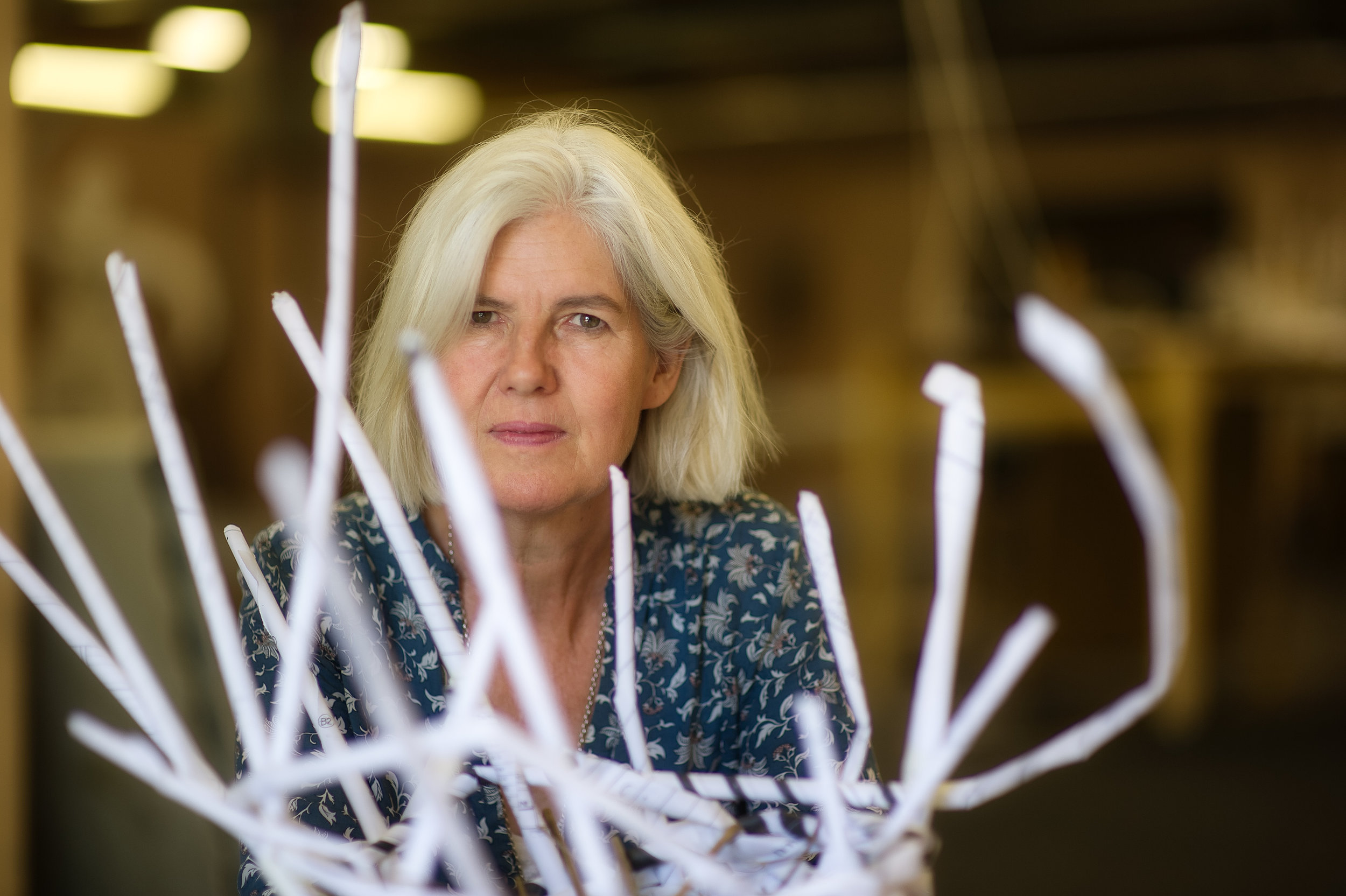Jane is the founding director of Global Generation, an educational charity which works with children and young people, often from disadvantaged backgrounds, to help them make a difference to their worlds.
S: “So, is vision the wrong word?”
J: “Well (smiling), if you can already see it, that’s not it!”
Finding Global Generation’s ‘Skip Garden’, nestling in the enormous King’s Cross construction site, was often a challenge. The garden, housed in portacabin classrooms, used builders skips to grow vegetables, fruit and herbs, and the whole lot would be picked up by the tower cranes and moved around the site as construction progressed. I had frequently searched for the garden, often with a crumpled access map in hand, to find Jane as she worked through her doctorate. We would speak about her Kiwi background, the way the organisation of the Skip Garden (literally) shifted, the challenges she faced and our often conflicting views of leadership.
This time, I met Jane at the ‘Paper Garden’, a small corner of a vast, brutalist, mostly deserted 1980’s newspaper print factory in Canada Water. Where once gigantic printing presses had operated, now the dark, cavernous print rooms were used as film and TV locations, occasional music venues, workspace for a few micro-businesses and, in one corner, the latest manifestation of the Global Generation project. As fluorescent tubes flickered into life, it was clear that the industrial space, littered with the remnants of the latest craft activities, had become another special space.
Special spaces, invitations to join and participate, activities that enable hands-on reflection and connection, story telling and cultivating our relationship with nature (both in London and at their campsite hidden in a copse on an organic farm in Wiltshire) are all critical elements of how Jane and the Global Generation team bring their vision to life.
J: “One afternoon, we had, it seemed like we had about fifty, architects and builders, whatever, developers, on a tour; they do a fifteen minute whistle stop tour through the Skip Garden, that kind of thing, it’s all a bit grimace. At one point, I usually say a few words and they move on to the next bit, but one of the guys just suddenly went, “It’s a bloody nice atmosphere here.” And I was like, “Wow. Great, Ok, good.” I couldn’t speak to that, I couldn’t explain it, but, you know… But I suppose my vision is around that.”
Jane’s radical doctoral thesis took the ineffable, unseen qualities of space seriously and looked at how she could use them provide a context and foundation for her own particular style of collaborative leadership: As a fifth-generation, Pakehā, (New Zealander of European descent) working in a multicultural setting in the centre of London, I needed to understand two fundamental and seemingly opposing forces that motivate me. One is the opportunistic and single minded drive of the pioneer and the other is a pull to deeper values of connection and wholeness.
Drawing deeply on her New Zealander background, Jane’s studies contrasted the individualist, mechanistic western worldview of the her settler forebears with the more participative philosophy of Māori mythology. She was drawn to the stories and symbology she discovered in Māori cosmology and how the legends told of ‘three baskets of knowledge’ that were made available to humankind.
J: “In the new print factory space we found piles and piles of engineering plans that were the drawings for the print machines and so we just thought, “Wow, those are interesting” and then, one day, maybe a few months ago, we had a volunteer day and somehow Siw, one of our colleagues, just spontaneously started rolling them up and now they are all woven into these most amazing baskets. Then we also wove an indoor yurt [a creative iteration of an outdoor version at King’s Cross] with cardboard newspaper tubes as the uprights and the left over newsprint as the weave that goes around. I am drawn to the symbolism of the place very quickly, I make those connections, and that seems symbolic somehow of feeling our role is bringing in nature, bringing the enchantment to the mechanical and reconnecting the natural world with the mechanistic world… and the role of weaving, the seen and the unseen, and the empty space. Those baskets are definitely defining our space so our photograph would probably involve a half made basket in some way.”
The draw of the woven yurt felt irresistible as we pondered Jane’s vision photo. As I made my preparations, Jane made hers, immaculately arranging the stools and chairs, arranging the woven paper basket as a centrepiece and setting out ‘twig pencils’ for the imaginary participants.
Photo-Dialogue: Jane Riddiford
A few days later, we spoke on a video call to reflect on our conversations and I shared Jane’s image on our screens.
S: “As you look at your photograph, how do you see yourself as a leader, as someone making a contribution to an organisation?”
J: “Well, if you asked me tomorrow I would probably answer differently, but a phrase comes to mind that I think really holds true; it’s driven by the sense that vision grows in the footsteps of shared commitment.”
S: “That’s a lovely line…”
J: “Yeah… there’s a feeling that I’ll do my bit to enable shared commitment to come about. I do see myself as a fire-starter, putting the logs in place and trying to make sure there’s enough air blowing through… it’s never going to work without the air, it would get suffocated… and you’ve got to have people to sit around the fire as well…to help make it really burn!

